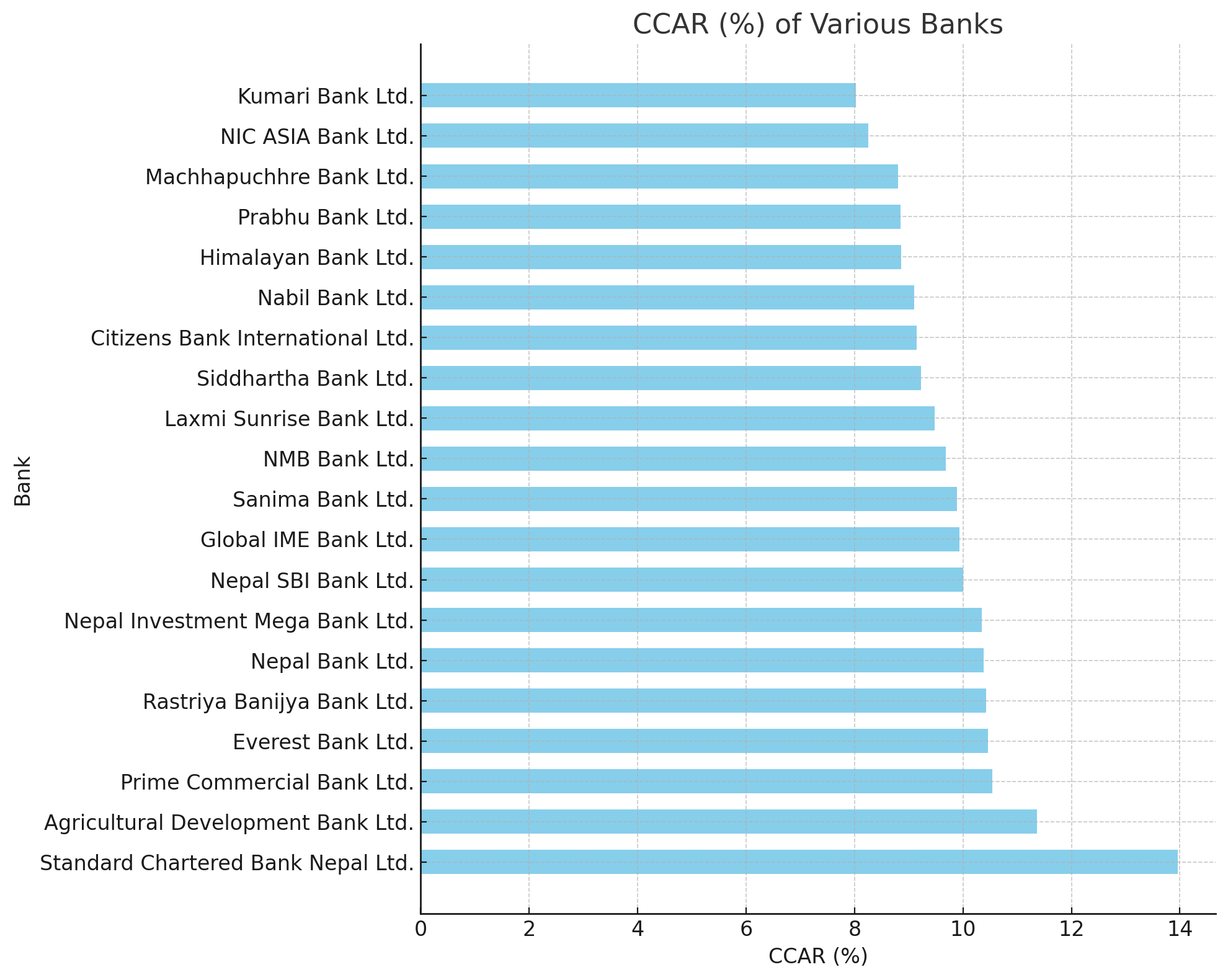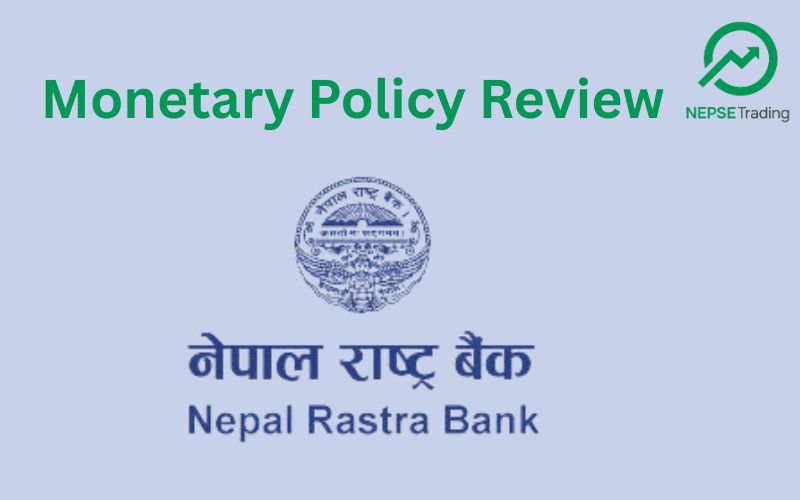By Sandeep Chaudhary
CCAR Non-Compliance: Kumari Bank Ltd. and NIC ASIA Bank Ltd. Face Bonus Distribution Ban

Based on the provided data and the NRB (Nepal Rastra Bank) regulation, banks with a CCAR (Capital to Risk-weighted Assets Ratio) below 8.5% are not permitted to distribute bonuses. Let's interpret the data accordingly:

Banks with CCAR Below 8.5%
Kumari Bank Ltd. - 8.03%
NIC ASIA Bank Ltd. - 8.25%
These banks, with CCAR values below 8.5%, are not allowed to distribute bonuses as per NRB regulations. This restriction ensures that banks maintain a sufficient capital buffer to safeguard their financial stability and protect depositors.
Banks with CCAR Above or Equal to 8.5%
The remaining banks have CCAR values above or equal to 8.5%, meaning they are eligible to distribute bonuses:
Machhapuchhre Bank Ltd. - 8.80%
Prabhu Bank Ltd. - 8.85%
Himalayan Bank Ltd. - 8.86%
Nabil Bank Ltd. - 9.10%
Citizens Bank International Ltd. - 9.15%
Siddhartha Bank Ltd. - 9.23%
Laxmi Sunrise Bank Ltd. - 9.48%
NMB Bank Ltd. - 9.68%
Sanima Bank Ltd. - 9.89%
Global IME Bank Ltd. - 9.93%
Nepal SBI Bank Ltd. - 10.00%
Nepal Investment Mega Bank Ltd. - 10.35%
Nepal Bank Ltd. - 10.38%
Rastriya Banijya Bank Ltd. - 10.43%
Everest Bank Ltd. - 10.46%
Prime Commercial Bank Ltd. - 10.54%
Agricultural Development Bank Ltd. - 11.36%
Standard Chartered Bank Nepal Ltd. - 13.96%
These banks have maintained their CCAR above the minimum threshold set by NRB, thus ensuring their ability to distribute bonuses and indicating a relatively stronger capital position.
In summary, only Kumari Bank Ltd. and NIC ASIA Bank Ltd. fall below the 8.5% CCAR requirement, and they are restricted from distributing bonuses. All other listed banks meet the regulatory requirement and are eligible to distribute bonuses.









